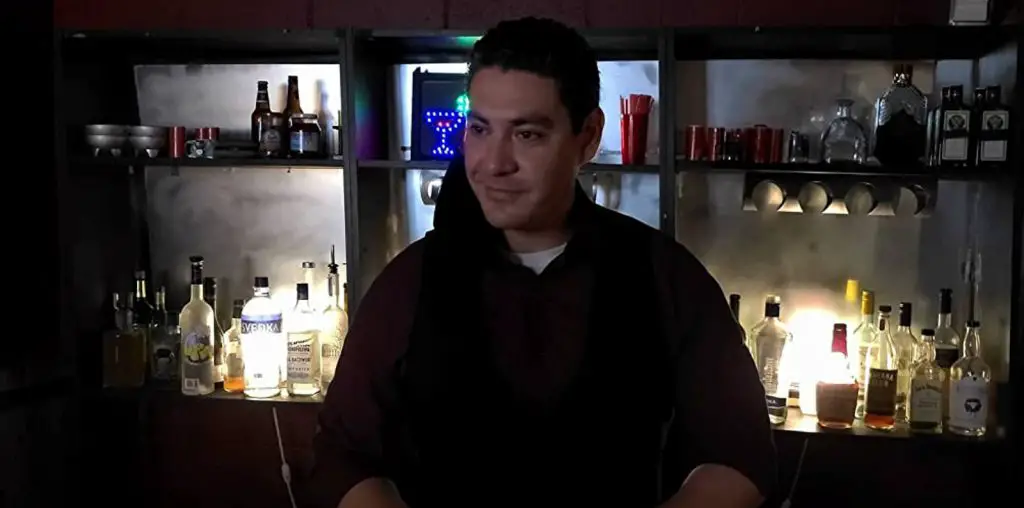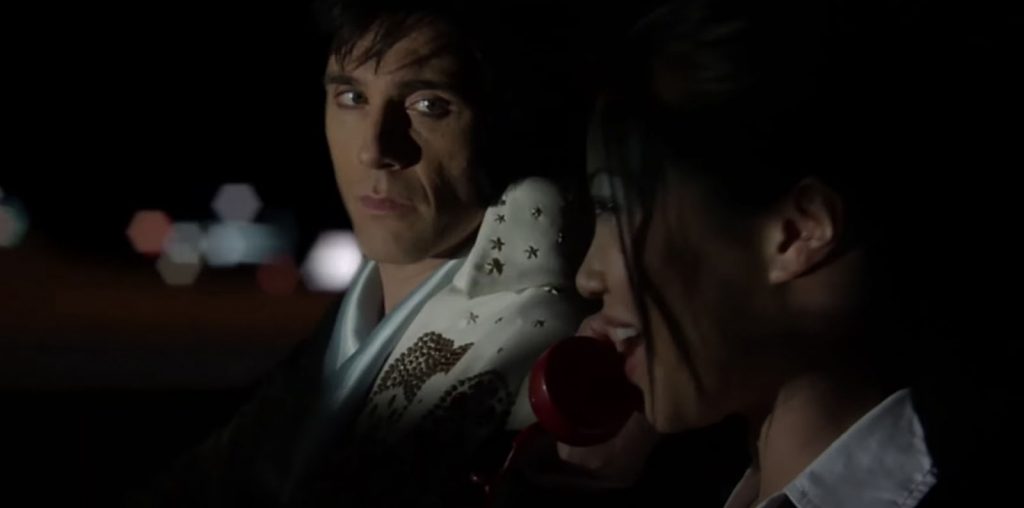
Henry LeRoy Finch’s film “Wake” documents what happens to four brothers as they spend one night together at their parents’ house. Sebastian (Dihlon McManne), a writer, has invited his three brothers to the house, supposedly to discuss their mother’s ailing health. Raymond (Blake Gibbons), an ex-prisoner, is the first to arrive. Kyle (Gale Harold), a mechanic, shows up next. Jack (John Winthrop Philbrick), an ex-cop, is the last to reach the house and he brings two girls from a bar with him. A fairly large amount of beer is consumed between the four brothers and the two guests that it doesn’t take very long for the living room’s atmosphere to turn from festive to tragic.
“Wake” begins and ends with a significantly older Sebastian (Martin Landau) typing at his typewriter. His voice-over narrations operate as a storytelling device. If Finch means to generate viewer-identification with Sebastian, intent doesn’t translate into result. In fact, none of the characters resonate enough within the viewer for there to be any sympathizing in the scenes that would ordinarily demand and receive it. Consequently, an audience would feel like it’s caught in the middle of a family dispute, watching but not relating. Nonetheless, because much of the dialogue exchanged between the brothers and some of Kyle’s auditory flashbacks allude to situations that aren’t clarified until over sixty minutes of the film have passed, there’s strong motivation to pay attention.
Although the film doesn’t secure a psychological connection between the viewer and the brothers, “Wake” triumphs in another aspect of character development. As writer-director, Finch has created brothers that don’t draw on archetypical models. Raymond is a trouble-maker; Kyle seems easily pushed around, but neither Jack nor Sebastian readily connect to any adjectives or social roles. Each brother fulfills a different purpose in the plot, and because they don’t allow you to get too emotionally close, they’re not as predictable. They’re more real. As their evening goes haywire, you begin to think the repercussions of what unfolds will persist even after the film ends.

